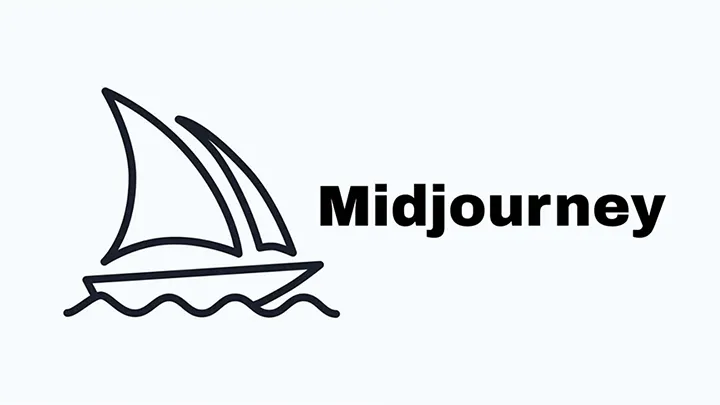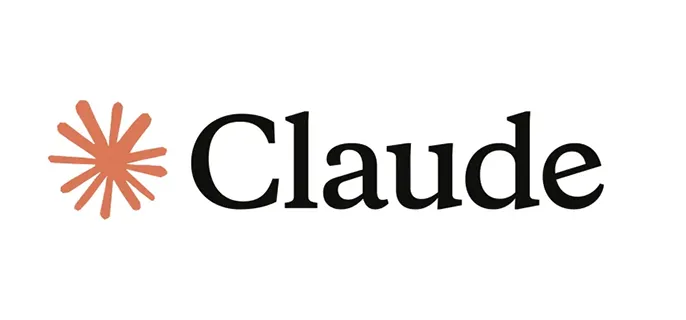Artificial intelligence is reshaping SEO fundamentals. AI-powered tools now analyze data, generate content, and optimize websites with unprecedented efficiency. These capabilities are transforming how businesses build their online presence and compete for search visibility.
The impact extends beyond simple automation. AI tools provide insights into user behavior, content performance, and search patterns that were previously impossible to detect at scale. For businesses serious about digital growth, understanding these AI applications has become essential.
Leading technologies like ChatGPT, Claude, Google Gemini, and Midjourney are at the forefront of this transformation. Each offers unique capabilities that, when strategically implemented, can dramatically improve search performance.
Understanding AI’s Role in Digital Marketing

Artificial intelligence systems perform tasks that traditionally required human intelligence—speech recognition, problem-solving, and decision-making. These capabilities have particular relevance for SEO and digital marketing strategies.
AI transforms the marketing landscape by processing vast quantities of data to extract actionable insights. For SEO professionals, this means more informed keyword research, content planning, and performance analysis.
Content creation has experienced the most visible transformation. AI writing tools can now generate blog posts, product descriptions, and website copy that aligns with search intent. These tools understand context, create natural-sounding text, and follow optimization guidelines—though they still require human oversight.
The benefits of AI integration include:
- Automated keyword research and content gap analysis
- Data-driven content planning based on user intent
- Streamlined content production workflows
- Enhanced performance tracking with predictive analytics
- Personalized user experiences at scale
Despite these advantages, challenges remain. Content quality control, strategic direction, and brand voice consistency all require human expertise. The most successful AI implementations combine machine efficiency with professional judgment.
The Rise of AI Tools in SEO

ChatGPT
OpenAI’s ChatGPT leverages deep learning to generate human-like text based on prompts. This versatility makes it valuable for SEO applications ranging from content creation to keyword research.
SEO professionals use ChatGPT to:
- Draft blog posts, product descriptions, and meta descriptions
- Generate content outlines based on search intent
- Create variations of existing content for testing
- Analyze competitors’ content strategies
- Brainstorm topic clusters and content ideas
ChatGPT excels at producing readable content across diverse topics and industries. However, its outputs require fact-checking, strategic optimization, and brand voice alignment before publication.
The technology continues to evolve, with each model iteration showing improved contextual understanding, reduced biases, and greater accuracy.
Google Gemini
Gemini (formerly Bard) represents Google’s advanced AI system with direct implications for search. Unlike other AI tools, Gemini’s close connection to Google makes its capabilities particularly relevant for SEO practitioners.
This technology excels at:
- Understanding search intent patterns
- Generating content that aligns with Google’s quality guidelines
- Creating natural language that meets E-E-A-T standards
- Optimizing content structure for featured snippets
- Analyzing competitor search performance
While not specifically designed as an SEO tool, Gemini’s insights into language processing reflect Google’s approach to content evaluation—making it valuable for understanding search ranking factors.
As Google continues integrating AI into search, familiarity with Gemini provides strategic advantages for anticipating changes in search algorithms and user behavior.

Midjourney
Midjourney specializes in AI-generated imagery, which has become increasingly important for comprehensive SEO strategies that extend beyond text.
SEO benefits of Midjourney include:
- Creating unique featured images for blog posts
- Developing visually consistent brand imagery
- Producing custom illustrations for complex topics
- Generating diagrams and infographics for technical content
- Creating social media visuals that drive engagement and traffic
High-quality visual content improves user engagement metrics, reduces bounce rates, and increases time on page—all signals that influence search rankings. Midjourney enables the creation of custom visuals at scale without extensive design resources.
The technology has evolved rapidly since its 2021 founding, with each version producing increasingly realistic and controllable imagery.

Claude
Anthropic’s Claude represents a significant advancement in conversational AI with particular strengths for SEO applications. Claude excels at understanding nuanced prompts and producing well-structured, coherent content.
SEO professionals find Claude particularly valuable for:
- Creating long-form content with consistent reasoning
- Generating comprehensive topic analyses
- Developing content with specific brand voice requirements
- Analyzing complex SEO data and providing actionable insights
- Writing technical content that requires precision and clarity
Claude’s ability to maintain context over extended conversations makes it especially useful for developing comprehensive content strategies. Its outputs typically require less editing than other AI tools, though human oversight remains essential.
The technology has improved dramatically in recent versions, with enhanced reasoning abilities and reduced hallucinations—making it increasingly reliable for SEO content development.
DALL-E
OpenAI’s DALL-E specializes in creating photorealistic images from text descriptions, offering unique advantages for visual content in SEO strategies.
DALL-E enables SEO teams to:
- Create custom header images that increase click-through rates
- Generate product visualization variations for e-commerce
- Produce branded illustrations that reinforce key concepts
- Design infographics that simplify complex information
- Create visual assets for social promotion of website content
Unlike stock photography, DALL-E images can be precisely tailored to specific content needs, creating unique visual assets that distinguish content from competitors. The technology has particular value for specialized industries where relevant stock imagery is limited.
The latest versions offer improved resolution, better text rendering within images, and more precise control over visual outputs—making it increasingly practical for professional applications.
AI-Enhanced Content Creation
The content development process has evolved significantly with AI integration. SEO agencies now leverage these tools to streamline production while maintaining quality standards.
Enhancing In-House Content Creation with AI
AI tools provide powerful assistance for content teams seeking to scale production. These systems excel at:
- Generating initial drafts based on content briefs
- Creating consistent structural templates across content pieces
- Developing variations for A/B testing
- Suggesting headline alternatives that improve click-through rates
- Identifying content gaps within existing topic clusters
This support enables in-house teams to focus on strategic decisions rather than writing fundamentals. AI handles repetitive elements while professionals oversee quality, accuracy, and strategic alignment.
Small teams gain particular advantages, achieving content production volumes previously requiring much larger staffs.
The Essential Role of SEO Expertise
AI-generated content represents a starting point rather than a finished product. SEO professionals remain critical for:
Strategic direction—determining which topics will drive business results Accuracy verification—ensuring factual correctness and current information Brand voice refinement—adjusting language to match established standards Strategic keyword integration—placing terms where they create the most impact User experience considerations—structuring content for readability and engagement
The most effective implementations view AI as an assistant rather than a replacement for professional judgment. Human expertise provides the strategic context that transforms raw AI output into effective SEO assets.
Technical Limitations and Emerging Solutions
Current AI technologies have specific constraints that impact SEO applications:
- Limited awareness of very recent developments
- Occasional factual errors requiring verification
- Challenges with highly technical subject matter
- Inconsistent handling of complex data
- Variable quality across topic areas
These limitations necessitate careful implementation protocols. Successful organizations develop clear processes for reviewing and enhancing AI-generated content before publication.
As technology evolves, these limitations continue to diminish. Each new model release demonstrates improved accuracy, greater factual reliability, and enhanced reasoning capabilities.
The Future of Copywriting and Content Creation
While AI tools have the potential to automate certain aspects of content creation, it’s unlikely that they will entirely eliminate the need for skilled copywriters and industry experts. Copywriting jobs that require in-depth knowledge, creativity, and a personal touch will always demand human expertise. However, AI tools can be leveraged to enhance productivity, optimize workflows, and support content creation in SEO agencies.
AI and User Experience Optimization
User experience signals have become increasingly important ranking factors. AI tools provide powerful capabilities for optimizing these elements at scale.
Personalization Capabilities
AI algorithms analyze user behavior patterns to deliver tailored experiences:
- Content recommendations based on browsing history
- Product suggestions aligned with purchase patterns
- Dynamic homepage elements reflecting user interests
- Location-specific information delivery
- Experience adjustments based on device characteristics
These personalizations improve engagement metrics like time on site, pages per session, and conversion rates—all factors that influence search rankings.
Implementation requires careful data strategy planning to balance personalization benefits with privacy considerations.
Technical Performance Optimization
AI tools continuously analyze site performance to identify improvement opportunities:
- Predictive loading of likely next-click pages
- Dynamic image compression based on connection speed
- Intelligent caching of frequently accessed resources
- Real-time adjustment of resource allocation
- Automated identification of performance bottlenecks
These optimizations improve core web vitals metrics that directly impact search rankings. AI’s ability to make real-time adjustments creates advantages over static optimization approaches.
Small improvements in load time consistently demonstrate significant impacts on both user experience and conversion metrics.
Enhanced User Interaction
Conversational AI interfaces create new possibilities for user engagement:
- AI chatbots that provide immediate assistance
- Voice search optimization for assistant compatibility
- Natural language processing for search queries
- Predictive navigation suggestions
- Interactive content recommendations
These technologies reduce friction in the user journey, leading to higher engagement metrics that positively influence search rankings.
The data generated from these interactions provides additional insights for ongoing optimization, creating a virtuous cycle of improvement.
The Future of AI in SEO
The integration of AI into search will continue accelerating, with several emerging trends likely to shape SEO strategy.
Predictive Analysis and Proactive Optimization
Advanced AI systems will increasingly forecast changes in search patterns before they occur:
- Seasonal trend prediction with greater accuracy
- Early identification of emerging keywords
- Detection of changing user intent patterns
- Anticipation of algorithm updates based on search quality factors
- Prediction of competitor strategy shifts
This capability will shift SEO from reactive to proactive, allowing businesses to position content ahead of emerging trends rather than responding to them.
Organizations with sophisticated AI implementation will gain first-mover advantages in competitive search markets.
Multimodal Search Enhancement
Search is expanding beyond text to incorporate visual, voice, and contextual elements:
- Visual search optimization leveraging image recognition
- Voice search patterns requiring natural language optimization
- Video content analysis and optimization
- Contextual search based on location and situation
- Integrated search across multiple content formats
This evolution requires SEO strategies that address all potential search modalities rather than focusing exclusively on traditional text search.
AI tools uniquely capable of processing multiple data types will become increasingly valuable for comprehensive search optimization.
Ethical Considerations and Strategic Balance
As AI capabilities expand, ethical implementation becomes increasingly important:
- Transparent disclosure of AI-generated content
- Maintaining authentic brand voice despite automation
- Balancing efficiency with quality and authenticity
- Developing responsible data usage policies
- Ensuring factual accuracy and expert verification
Organizations that establish clear ethical guidelines for AI implementation will build greater user trust and brand authority.
The most successful strategies will blend AI efficiency with human creativity and judgment, recognizing that each has essential contributions to effective SEO.
Implementing AI in Your SEO Strategy
The transition to AI-enhanced SEO requires thoughtful implementation. Organizations see the greatest benefits when following structured adoption processes.
Begin with targeted applications where AI demonstrates clear advantages:
- Keyword research and competitive analysis
- Content brief generation
- First-draft content development
- Technical SEO auditing
- Performance analytics and reporting
Start small, measure results, and gradually expand implementation based on proven performance gains. This methodical approach builds organizational confidence while minimizing disruption.
Develop clear protocols for human oversight, particularly for content publication workflows. Establish responsibility guidelines for fact-checking, brand voice consistency, and strategic alignment.
The most successful implementations view AI as a partnership rather than a replacement technology. Human judgment provides the strategic context that makes AI applications truly effective.
Winning the SEO Game with Strategic AI Integration
AI has fundamentally transformed SEO strategy, creating new possibilities for businesses seeking competitive advantages in search visibility. From content creation to user experience optimization, these technologies provide powerful capabilities for organizations ready to implement them effectively.
The key to success lies not in wholesale adoption but in strategic integration that combines AI efficiency with human expertise. Organizations that develop this balanced approach position themselves for sustainable search performance improvements.
As search engines themselves increasingly incorporate AI into their ranking processes, familiarity with these technologies becomes essential for understanding the evolving search landscape.
Your business can win the SEO game with the right AI strategy and focus.
Ready to transform your SEO strategy with AI-powered tools and expertise? Schedule a call with Nozak Consulting today to discover how our team can help your business leverage these powerful technologies for sustainable growth.
About the Author:

